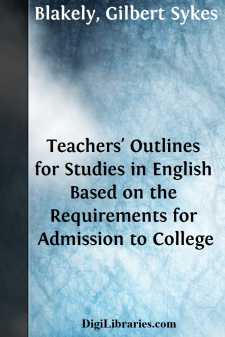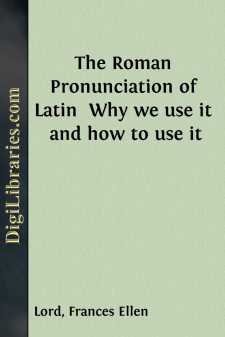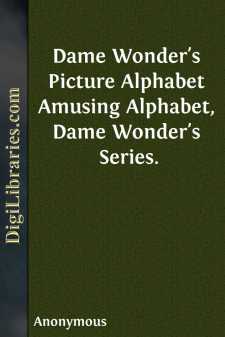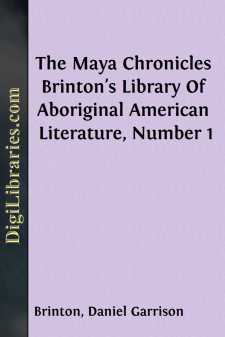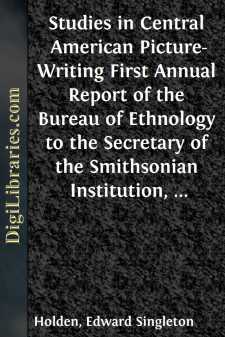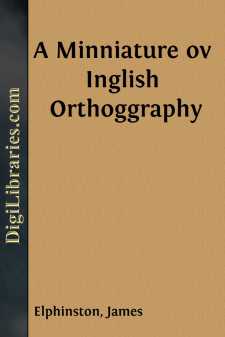Language Arts & Disciplines
Language Arts & Disciplines Books
Sort by:
I. THE TEACHING OF THE NOVEL All will agree that the novel is one of the most important forms of literature for high school study. The fact that almost every boy and girl who is at all interested in reading likes the novel, gives the teacher an excellent opportunity to stimulate the pupil's love for literature and to help him to discriminate between what is true and what is false; between what is...
more...
INTRODUCTION. The argument brought against the ‘Roman pronunciation’ of Latin is twofold: the impossibility of perfect theoretical knowledge, and the difficulty of practical attainment. If to know the main features of the classic pronunciation of Latin were impossible, then our obvious course would be to refuse the attempt; to regard the language as in reality dead, and to make no pretence of...
more...
by:
Anonymous
stands for anrcher,Bfor hisBow;CtheCrow that he shot at;—andDfor hisDog. Estands for anEnsign,Ffor aFlag, and aFort:Gstands for aGoat;—andHfor aHorse. Istands for anItalian,Jfor aJug, and forJane:Kstands for aKite:—andLfor aLobster. Mstands forMary,Nfor theNumbers she wrote;Ostands for anOwl:—andPfor a prettyParrot. Qstands for aQueen,Rfor theRose in her hand:Sfor theSword...
more...
INTRODUCTION. CONTENTS. 1. The Name “Maya.” 2. The Maya Linguistic Family. 3. Origin of the Maya Tribes. 4. Political Condition at the time of the Conquest. 5. Grammatical Observations. 6. The Numeral System. 7. The Calendar. 8. Ancient Hieroglyphic Books. 9. Modern Maya Manuscripts. 10. Grammars And Dictionaries of the Language. § 1. The Name “Maya.” In his second voyage, Columbus heard vague...
more...
Since 1876 I have been familiar with the works of Mr. John L. Stephens on the antiquities of Yucatan, and from time to time I have read works on kindred subjects with ever increasing interest and curiosity in regard to the meaning of the hieroglyphic inscriptions on the stones and tablets of Copan, Palenque, and other ruins of Central America. In August, 1880, I determined to see how far the principles...
more...
by:
Grant Allen
I. LETTER-WRITERS. Since old Leisure died, we have come to think ourselves altogether too fine and too busy to cultivate the delightful art of correspondence. Dickens seems to have been almost the last man among us who gave his mind to letter-writing; and his letters contain some of his very best work, for he plunged into his subject with that high-spirited abandonment which we see in...
more...
CHAPTER I ABOUT NOSES AND JAWS A foxhound scents the trail of his game and tracks it straight to a killing. A lapdog lacks this capability. In the same way, there are breeds of would-be writers who never can acquire a "nose for news," and others who, from the first day that they set foot in editorial rooms, are hot on the trail that leads to billboard headlines on the front page of a newspaper...
more...
INTRODUCTION The articles here presented are modern and unhackneyed. Selected primarily as models for teaching the methods of exposition employed in the explanation of mechanisms, processes, and ideas, they are nevertheless sufficiently representative of certain tendencies in science to be of intrinsic value. Indeed, each author is a recognized authority. Another feature is worthy of mention. Although...
more...
by:
James Elphinston
1. INTRODUCTION. Hwen evvery oddher language, and at last our own, haz been reduced to' science; rendered accountabel to' natives, and accessibel to' straingers; hwence iz it, dhat our practice, growing daily more a contrast dhan an exemplificacion ov our theory, tempts ignorance to' speak, az blind habbit spels; raddher dhan to' dream ov spelling, az propriety exhibbits her...
more...
PREFACE. This work aims primarily at giving a list of Scandinavian loanwords found in Scottish literature. The publications of the Scottish Text Society and Scotch works published by the Early English Text Society have been examined. To these have been added a number of other works to which I had access, principally Middle Scotch. Some words have been taken from works more recent—"Mansie...
more...


